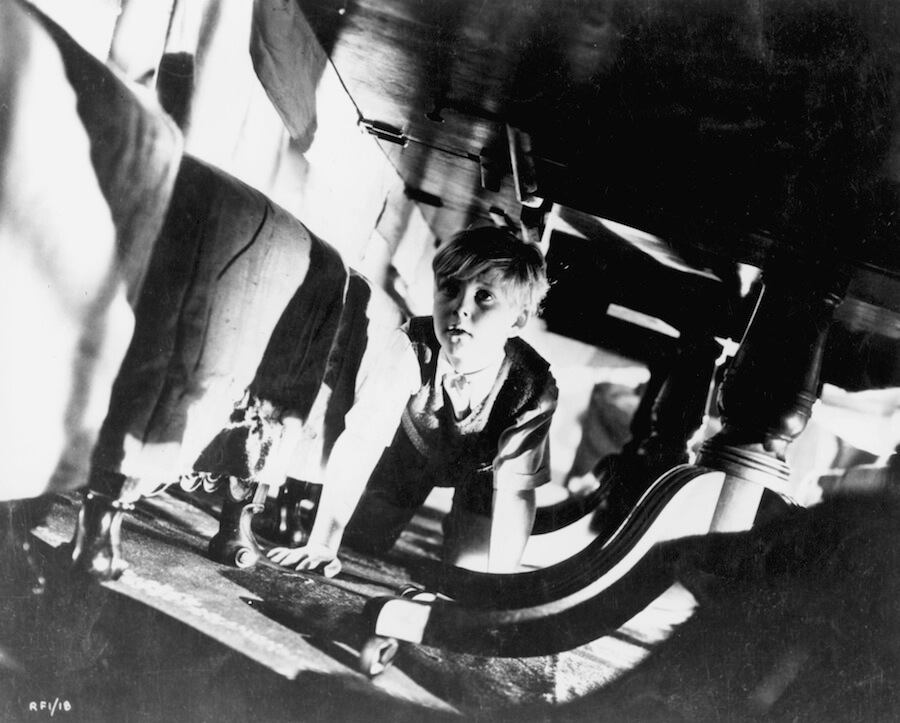‘The Fallen Idol’ “The Fallen Idol” has long stood in the shadows of the movie its makers made one year later. There’s no shame in that: That film was “The Third Man.” And yet director Carol Reed and author Graham Greene’s first team-up is in some ways an even more brilliant contraption, and with a third act that might be superior, too. (It doesn’t have quite the same final shot, but again: No shame.) It’s a quaint English drama that, like “The Third Man,” makes a late-in transformation into something else entirely. Given the severity of the shift, “Idol”’s twist might be even more shocking than simply having Orson Welles make a tardy first appearance. RELATED: Interview: Ian McKellen talks “The Dresser” and how acting isn’t that difficult Based, and only semi-faithfully, on Greene’s short story “The Basement Room,” it’s largely trapped inside a home so lavish and ornate we might be shocked to learn it’s nestled inside London. It’s home to a diplomat, who’s never had time nor much affection for his young half-French son, Philippe (Bobby Henrey), one of cinema’s few moppets who really seems like a kid. He’s so lonely he doesn’t mind blurring class lines to hobnob with the staff. Indeed, his father figure isn’t his father but Baines (Ralph Richardson), the fastidious but meddling butler. It’s Baines who escorts Philippe on adventures in the city, tells him wild, made-up (and racially offensive) stories about his “stint” in Africa and protects him from his dreaded wife and fellow employee, the pathetically wound-up Mrs. Baines (Sonia Dresdel). How this will ever turn into a nail-biter isn’t clear until right before the twist comes, but the build-up is still sick with tension. Baines has a bit of something on the sly with a young French woman (Michele Morgan) — and Mrs. Baines is bound to find out. This will eventually lead to a freak accident, followed by a fall-out in which Baines will have to lie about a sticky situation in which he’s innocent but definitely looks guilty. He can’t explain away certain coincidences, and once Philippe tries to help him out, he may make things worse, through sheer dint of being a very, very young child. RELATED: Review: “Unlocking the Cage” isn’t only an activist film about animal rights Prim and proper in its first hour, “The Fallen Idol” unleashes carefully controlled chaos in its last third. Reed was a man of great precision — of shots, of pace, of tone. He meets his match in Greene, even though the two never should have clicked. Greene was a die-hard Catholic and moralist who loved punishing his heroes for their sins; Reed was a humanist who knew how to soften his sometime-partner’s severity. (The two would work a third time, via 1959’s “Our Man in Havana.”) Still, it’s Greene who did most of the softening here. His source has a completely different third act, with Baines guilty of his crime, thus becoming a “fallen idol” in the eyes of Philippe. The script changes that utterly, heading into more interesting ground — and, as it were, rendering the title, insisted upon by the studio, meaningless. Still, who cares about titles? Whatever it’s called, “The Fallen Idol” is a smooth blend, containing multitudes. Greene supplies the meat, Reed the technique. Reed deftly jumps between two perspectives: a voyeuristic child’s eye view and the unstable world of adults. As the film wears on, Baines’ attempts to protect his young charge from the messiness and ugliness of life wind up backfiring, and we see a sweet kid tarnished, even in the act of doing good. The happy ending is far too happy, restoring too much order. But luckily, for the film if not for Philippe, the real damage is already done.
Director: Carol Reed
Stars: Ralph Richardson, Bobby Henrey
Rating: NR
5 (out of 5) Globes
‘The Fallen Idol’ brings back Carol Reed’s shape-shifting classic

Rialto Pictures
Follow Matt Prigge on Twitter @mattprigge


















